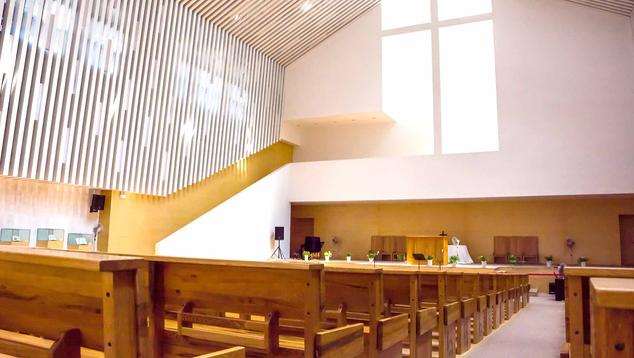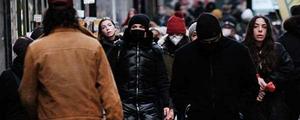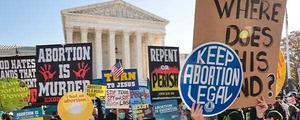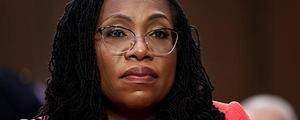Americans' attitudes about abortion, brought to the forefront of public attention by the recently leaked Supreme Court draft opinion overturning Roe V. Wade, significantly correlate with their personal characteristics and identities. One of the most important of these variables is religion. This reflects the fact that many opponents of abortion make their arguments based on religious grounds, and many religious organizations have made their positions on abortion a significant part of their tenets, beliefs and principles.
The three largest religious groups in the U.S. today are non-Catholic Christians (Protestants), Catholics and those who claim no religious identity or "nones." Protestants and Catholics are virtually the same in their attitudes toward abortion, with 23% of the former and 24% of the latter saying that abortion should be illegal in all circumstances, based on a five-year aggregate of Gallup data from 2017 to 2021. This is slightly higher than the overall national average of 19% who say abortion should be illegal under any circumstances. Similarly, 56% of Protestants and 54% of Catholics say abortion is morally wrong, somewhat above the overall sample average of 48%.
Those with no religious identity are much more accepting of abortion; only 5% of this group say abortion should be illegal in all circumstances, and only 21% say abortion is morally wrong. The sample size of Jewish Americans is small, but a 10-year aggregate of data from 2012 to 2021 shows that Jewish attitudes are similar to "nones," with 6% saying abortion should be totally illegal and 21% saying abortion is morally wrong.
The data show there are significant differences in attitudes toward abortion within religious groups based on individual religiosity. For example, the more religious the Protestant and the more religious the Catholic, the more likely the individual is to say that abortion should be illegal in all circumstances. Some 41% of Protestants and 43% of Catholics who attend church weekly say abortion should be illegal in all circumstances, while that number drops significantly among those who report attending less often.
(For this analysis, I'm primarily using Gallup data measuring the percentage of Americans who agree with a relatively extreme position - that abortion should be illegal in all circumstances. This position is significant given the expectation that if the Supreme Court overturns Roe v. Wade in the next month, many states will trigger laws that adopt this total-ban position on the procedure. Plus, the Catholic and Southern Baptist positions call for a total ban on the procedure. But the basic relationships between religiosity and abortion attitudes are very similar regardless of the measure used.)
The pattern among Protestants and Catholics reflects the general pattern in the U.S. -- the more religious the individual, the more likely that individual is to say that abortion should be illegal in all circumstances. Only 9-10% of all Americans who seldom or never attend religious services say that abortion should be illegal in all circumstances, jumping to 19-23% among those who attend once a month or almost every week, and to 40% of those who attend church once a week.
The same relationships pertain to other measures of abortion attitudes. For example, the percentage of all Americans who think abortion is morally wrong ranges from 75% among weekly religious service attenders to less than half of that among those who seldom or never attend. And the percentage of weekly church attenders who say abortion should be illegal in all or most circumstances ranges from 78% among weekly church attenders and 64% among those who go almost every week, down to 36% among those who never attend.
In short, the relative religiosity of Americans (that is, how religious they are) is more predictive of their abortion attitudes than their broad religious identity.
Relationship Between Religiosity and Abortion Attitudes Holds Within Political Groups
As expected, Americans' partisan identity is a quite significant predictor of abortion attitudes, with Republicans more likely to say abortion should be totally illegal than independents and Democrats. More specifically, the percentage who say that abortion should be illegal in all circumstances is 29% among Republicans, 19% among Independents, and 10% among Democrats. (Similarly, the percentage who say abortion is morally wrong is 68% among Republicans, 48% among independents and 29% among Democrats.)
But the predicted pattern of relationship between religiosity and abortion attitudes is found within each of these three political groups. The belief that abortion should be illegal in all circumstances rises to a quite high 54% among Republicans who attend church weekly, which is almost three times as high as the national average. The belief that abortion should be totally illegal drops to 12-15% among Republicans who seldomly or never attend religious services.
Democrats as a group are much less likely to say abortion should be illegal in all circumstances, as noted, but the relationship with religiosity holds, with 22% of those Democrats who attend weekly favoring a total ban, compared with 4% and 5% among those who seldom or never attend, respectively. The spread among independents goes from 38% of weekly attenders who say abortion should be totally illegal to 10-11% among those who seldom or never attend.
In short, both religiosity and party identification have an independent or additive effect on abortion attitudes, creating a very large range in attitudes when these two variables are combined.
Relationship Holds Within Gender and Race, Ethnic Groups and Age
We find evidence of a similar impact of personal religiosity within other segments of the American population defined by their demographic characteristics -- including gender, race and ethnicity, age, and region of the country.
-
Overall, the data show little substantial difference in views that abortion should be totally illegal between men and women, between younger and older Americans, and between White and Black Americans. But highly religious individuals within each group are significantly more likely to say that abortion should be illegal under any circumstances than those who are less religious.
-
There are significant differences in abortion attitudes between those living in the South and those living elsewhere. But the same relationship between religiosity and abortion attitudes holds within each region. Highly religious individuals living in the South, the East, the Midwest, and the West are more likely to say abortion should be totally illegal than those living in each region who are less religious.
Bottom Line
The relationships reviewed above reflect the highly intertwined cluster of attitudes, demographics, and religious and political identity positioning in today's America. Highly religious people tend to be Republican, tend to have a formal religious identity, and tend to live in the South -- and all of these, in turn, are related to an increased probability of belief that abortion should be illegal in all circumstances. This makes it difficult to argue that one of these factors causes the other. Abortion attitudes could reflect pre-existing political identity, which in turn is a factor in personal religiosity, or religiosity could lead one to become a Republican and adopt a negative position on abortion.
The data make it clear that religiosity is at least to some degree independent of these other factors. Religion's relationship to abortion attitudes persists after controlling for religious identity, political identity, region, gender, age, and race and ethnicity.
These patterns are not new. An analysis conducted over a decade and a half ago by myself and Lydia Saad using 2004 and 2005 data showed very similar relationships. The more frequent the church attendance, the more anti-abortion the attitudes. And as is the case now, this relationship was evident in the earlier data within both religious and political groups.
There is a huge and disputatious amount of literature focused on often complicated and sometimes obscure theological arguments about religion and abortion. For Christians, there is little direct guidance from either the Old or New Testaments in most translations. As one professor at Yale Divinity School put it, "Christians who turn to Scripture to trump political debates on abortion should be reminded that the Bible does not say anything on the topic." That, of course, has not kept individuals on both sides of the issue from using various passages in the Bible and their religious traditions to prooftext their positions on the issue. Many religious bodies, including two of the nation's largest religious entities, the Catholic Church and the Southern Baptists, have adopted official positions about abortion based on their reading of the Bible and their theological histories. Other evangelical Protestants have made abortion a central issue in their positioning on politics and political candidates.
More fundamentally, religion has historically been involved with normative prescriptions and proscriptions relating to sexual behavior and marriage, of which abortion can be a part. The Catholic Church and many Protestant denominations have long instructed their members in ways of marriage, family and, in turn, the bearing of children. As one Christian author put it, "Evangelicals share something in common with every other branch of conservative Christianity. They hold to a simple view of sex outside of marriage, rooted in many centuries of historical teaching and what appear to be the plain teachings of the Bible, especially the New Testament -- don't." The vast majority of abortion procedures are undertaken by unmarried women, which ties abortion into religiously-based norms about sexual behavior among unmarried people.
Religion may also be indirectly related to the pending Supreme Court decision on Roe v. Wade, although it is not likely to be an official part of any final opinion. Four of the five justices generally considered conservative and supportive of overturning Roe are Catholic -- Samuel Alito (author of the leaked draft opinion), Brent Kavanaugh, Amy Coney Barrett, and Clarence Thomas; the fifth, Neal Gorsuch, was raised Catholic. Chief Justice John Roberts is also a Catholic. Except perhaps for Barrett, whose strong religious beliefs are a matter of public record, we don't have precise insights on the personal religiosity of these justices. But the teachings of these justices' Catholic faith could influence their ultimate decision making, as, of course, could be the case for the other more liberal justices, two of whom (Stephen Breyer and Elena Kagan) are Jewish.
Whatever the precise historical and theological origins of the relationship, the data confirm that individual religiosity is a robust and long-standing predictor of attitudes toward abortion.




